As Boeing struggles with the 737 Max crisis, its rival Airbus has scooped a massive order from China – 290 A320-family jets and 10 A350 wide-body jets. French officials said the mega deal was worth some 30 billion Euros (US$34 billion; £25.7 billion; RM138 billion) at catalogue prices, before significant discounts customers would typically receive for such huge order.
European manufacturer Airbus’ huge order from China is similar to one announced by American manufacturer Boeing less than two years ago. When U.S. President Donald Trump visited Beijing in November 2017, the Chinese similarly made public the deal to purchase 300 aircraft from Boeing.
The latest deal to purchase the Airbus jets was signed during President Xi Jinping’s visit to Paris, France. The deal will likely be a blow for Boeing, under tremendous pressure after two fatal crashes involving its 737 Max 8 jets in five months, leading to the grounding of the model by more than 50 airlines around the world – including the U.S. aviation industry after much hesitation.
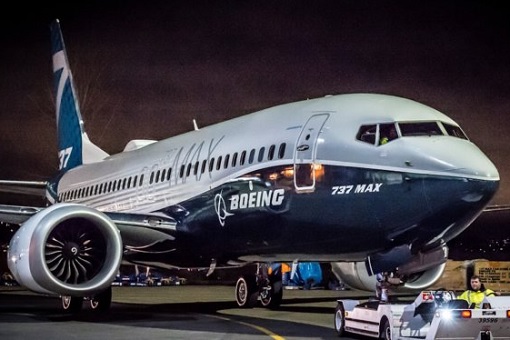
Although such gigantic orders are often announced during state visits by world leaders, the ongoing trade war between the United States and China has raised eyebrows over the potential chess moves made by the Chinese. Interestingly, French President Emmanuel Macron was humiliated when he failed to strike a deal for 184 jets during his official trip to China in early 2018.
Obviously, something must be brewing when the French president had previously failed to even seal a deal for 184 planes, but is being gifted with larger-than-expected order of 300 planes now. Could it be merely a coincidence that the order for Airbus miraculously matches the order for 300 Boeing jets when Trump visited Beijing in 2017?
For the time being, there’s no evidence of any direct connection between the Airbus deal and US-China tensions. However, Beijing has a habit of sending diplomatic messages through mega business deals. The latest Airbus deal is the second biggest order in the history of the European manufacturer after Indigo Partners bought a staggering 430 A320neo in November 2017.
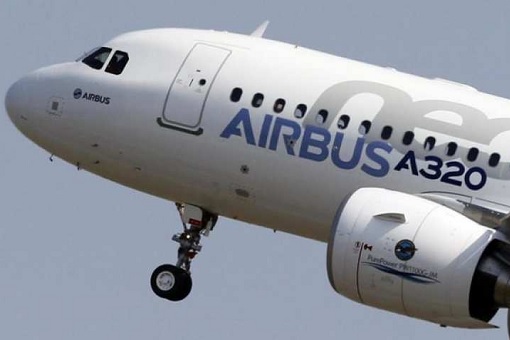
According to the Airbus’ latest forecast in November, China will need around 7,400 new passenger and cargo aircraft over the next 20 years, for 2018-2037. That’s a mind-boggling 20% of the global demand. You don’t need a rocket scientist to tell that aircraft is a very powerful weapon that the Chinese can use to pressure both the U.S. and European Union to get what they want.
So, what does China want, or at least try to leverage here? Based on the 30 billion Euros price tag for 300 Airbus jets, the future purchase of 7,400 new aircraft would be worth an eye-popping 740 billion Euros (US$837 billion; £634 billion; RM3.4 trillion). That’s an insane powerful purchasing power that neither Boeing nor Airbus could ignore.
Indonesian airline Garuda said last week that it is seeking to cancel a multibillion-dollar order for 49 737 Max aircraft from Boeing. In the same breath, Bloomberg also revealed last week that China might consider excluding the Boeing 737 MAX from a trade deal with the United States, using the Lion Air Flight 610 and the Ethiopian Airlines Flight 302 crashes as the excuse.
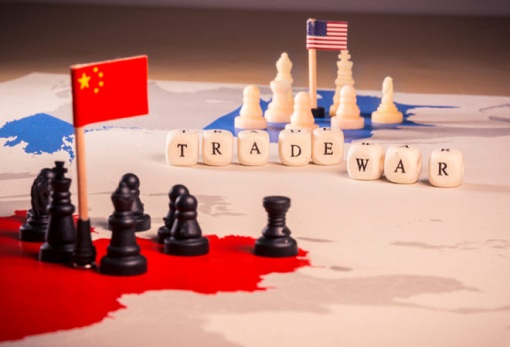
According to Boeing, Chinese airlines made up about 20% of 737 Max deliveries worldwide through January. Hence, the exclusion of Boeing Max purchases in a trade deal being negotiated by the U.S. and China would mark another setback for the American company, and potentially puts pressure on the U.S. stock market, something which has been feared by President Trump.
Considering the fact that China was the first country to ground the 737 Max earlier this month following the crash of an Ethiopian Airlines flight, the Chinese appears to be extremely motivated in milking future purchase of Boeing planes to the fullest in relation to the trade dispute between both nations. The purchase of Airbus provides a new lever for China to pull in its negotiation with the U.S.
President Xi deliberately kicked off his European tour last week in Italy, where it became the first developed economy to sign up to China’s global Belt and Road Initiative (BRI). Besides being the third largest economy in the Eurozone, Italy has also become the first member of the G7 group of developed world economies to take the money offered by China.
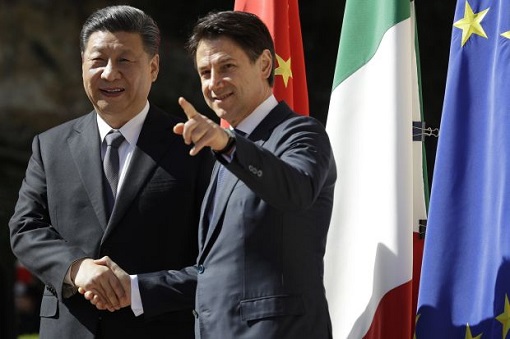
Although it was not part of the business negotiations in Italy, the agreements signed in Rome come amid questions over whether Huawei should be permitted to build essential communications networks, especially the 5G technology – after the United States expressed concern the Chinese telecommunications equipment manufacturer could help Beijing spy on the West.
Fifth-generation wireless, or 5G, is the latest mobile internet technology engineered to greatly increase the speed and responsiveness of wireless networks. With 5G, data transmitted over wireless broadband connections could travel at rates as high as 20-Gbps by some estimates – making it the buzzword as the backbone of future cities and even driverless cars.
Similarly, the Airbus deal could be the first step in the Chinese overall strategy to push for the acceptance of Huawei technology in France. Already, Angela Merkel, Chancellor of the Federal Republic of Germany, has dealt a major blow to the U.S. when she announced last week that the biggest economy of the European Union will not bend over to the pressure to boycott the Huawei.
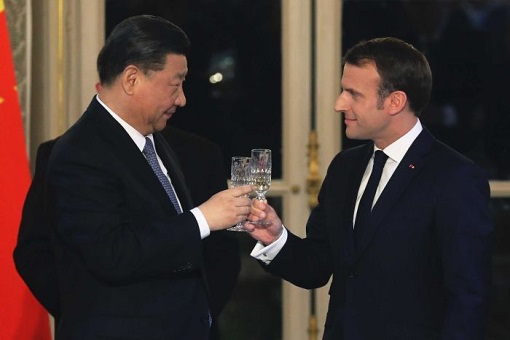
In total, China and France agreed deals with a value of around US$45 billion, covering areas such as shipping, banking and renewable energy. The Chinese are splashing money all over the European Union to win over its support, or at least neutralise the economic union’s hostility toward Beijing, as the world’s second biggest economy aggressively expands its influence in Europe.
Other Articles That May Interest You …
- Profit-Hungry Boeing – Crashed 737 Max Jets Did Not Have 2 Safety Features Because They’re Optional
- FAA Protecting Boeing? – Despite Assurance, Airlines Around The World Suspend Boeing MAX-8 Jets
- Boeing In Trouble – Stock Sinks In Worst Fall Since 2001 After Best Selling 737 MAX-8 Jet Crash
- Trade War Could End Soon – Trump May Even Drop Charges Against Huawei To Strike A Deal
- “You Cannot Crush Us” – Huawei Founder Warned About Shifting Investment From The U.S. To U.K.
- What Trade War? US Trade Deficit With China Hits Record High $323.32 Billion Last Year
- From Trade War To Political Kidnapping – Two Canadians Held “Hostage” As China Retaliates
- China Furious!! – CFO & Daughter Of Huawei Founder Arrested In Canada On Behalf Of The U.S.
- China Invasion – Top 10 American Iconic Brands Now Owned By Chinese

|
|
March 26th, 2019 by financetwitter
|


|

|

|

|

|

|




























If that is the view of the strategy of the Chinese, it only shows how blooming clever the Chinese are!
When we have to honour a memorial in our own country to genocidal Japanese invaders of our homeland just because some shameless redneck went crawling to Japan for funds, it shows how low some can crawl.
Fancy, some of our monkeys think they can play China, when the Chinese deftly play everyone – especially those our monkeys look to as colonial massahs!
How unsightly!
No Chin Pengs, these..!